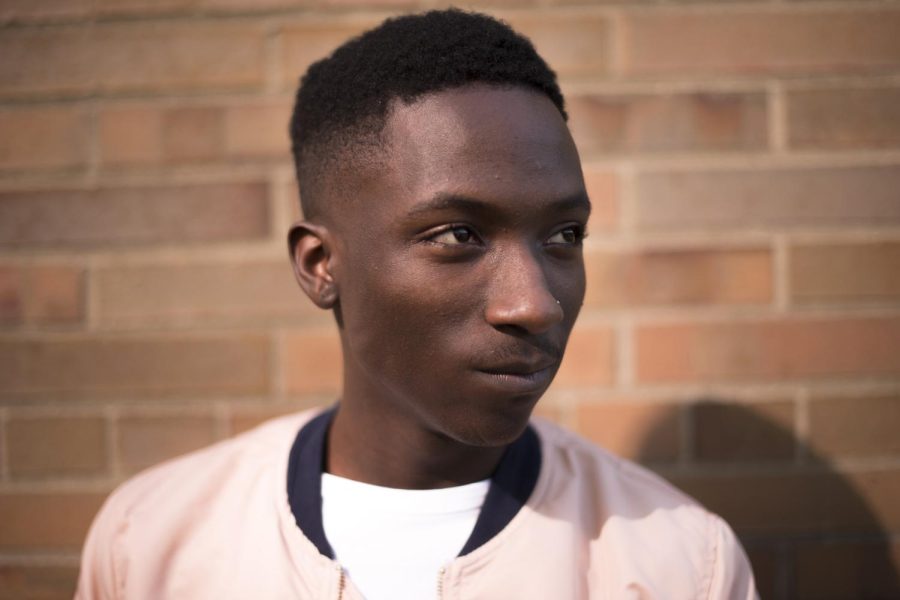Celebrating Black History Month: Q&A with MEN President Emonte Wimbush
Kent State fashion merchandising major Emonte Wimbush is the Spring 2017 president of the Kent State’s Men’s Empowerment Network.
February 21, 2017
In honor of Black History Month, The Kent Stater is featuring Q&As with black student leaders throughout the month of February.
This week we spoke with junior fashion merchandise major Emonte Wimbush. Wimbush, president of Male Empowerment Network, spoke on his feelings of pursuing a career in fashion and why an organization like M.E.N. is needed on campus.
KS: How did you become president of your organization?
EW: I’ve been involved with M.E.N ever since I got to the university. The first semester of my sophomore year I became vice president of the organization. They saw the work that I did around campus. The president who was president when I was vice president was graduating and was looking for someone to take over, and they were interested in me. The next semester I was thrown into the role of president … and we just got the ball rolling from there.
KS: How does Kent State benefit from having a group like M.E.N on campus?
EW: I feel like this is a huge necessity for Kent (State) to have (M.E.N.) because the black male retention (rate) is currently down. I feel like the weight is on our shoulders to provide students with the platform and a space to feel safe and like they belong here so they do not leave after their first or second semester … (and) the sessions and the work we do as a organization is definitely playing a huge part in giving students a safe place on campus at a predominantly white institute (as well as) giving them the tools to handle the things they go through.
KS: What is it like being a black male pursuing a major in fashion merchandising?
EW: I’ve struggled with building a comfort level majoring in what I’m majoring in. I feel like the odd person out because it is always hard for me to be in a field that is predominantly female and then it’s predominantly white females at that. I really just try to work to create a platform that a heterosexual male can succeed in the fashion industry and not be judged immediately. I’m also trying to create a platform for black males to succeed in the industry to where it is not an odd norm. I want black males to feel comfortable pursing a fashion degree or a career in fashion.
KS: How does the climate where you’re from in Washington, D.C. differ from that of Kent State?
EW:There weren’t very many instances where I faced racism at home, and it was just like a huge culture shock because it is so divided here. When people think of diversity here, they only think of a black and white thing, where in D.C. it is very diverse. There is any and every ethnicity or race that you can think of walking down the street in D.C. When I got here, it was just like people only see white and black, and there is definitely a gap that needs to be bridged when it comes to that.
KS: Who is someone of color that you consider influential?
EW: I would definitely say (artist) Pharrell (Williams) … he represents what I am trying to do. He is a black male who takes off in the fashion industry and has that respect level to where he can sit at the table with big-name people in the fashion industry and have conversations with them and they respect the influence that he has in the industry. I am just trying to get to that level.
I also look up to (rapper) A$AP Rocky because he is from an inner city area, and he didn’t grow up in the best climate, … (which) is similar to me. However, he is still able to have that influence where he can make things shake in the industry and sit at the table with big names and have that influence just like Pharrell. I definitely try to model the things that I have done after the steps that they have taken.
Olivia Williams is the African-American student life reporter, contact her at [email protected].












